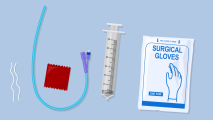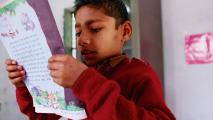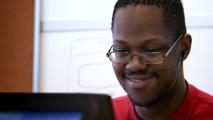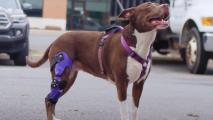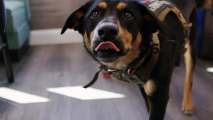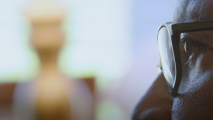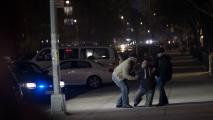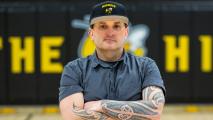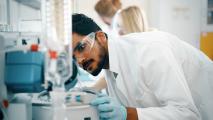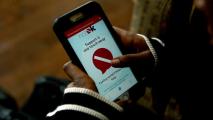
Biotech
Human history has been all but defined by death and disease, plague and pandemic. Advancements in 20th century medicine changed all of that. Now advancements in 21st century medicine promise to go even further. Could we bring about an end to disease? Reverse aging? Give hearing to the deaf and sight to the blind? The answer may be yes. And soon.
More
The future of healthcare could look a lot like the 1900s
For many cancer patients, being treated at home is just as safe, more affordable, and more convenient than being…
Macgyver medicine can save lives
The package is simple and dirt-cheap—a plastic bag with a condom, a syringe, a rubber tube, and a card with…
How to change the world
Olivia Leland, founder and CEO of Co-Impact, on how we should approach solving the world’s most complex problems.
Drone racers are a thing and they’re amazing
Blistering speed. Big money. 11-year-old world champions. Is drone racing the next big sport?
Is autism a mysterious medical condition or part of the spectrum of human diversity?
Rethinking Autism: Interview with NeuroTribes Author Steve Silberman
Can people with autism help create next-generation AI?
Daivergent is a new startup that hires people with autism to train artificial intelligence – and helps them start independent careers.
The joy of being wrong
Can practicing intellectual humility make us smarter and happier? Science says yes.
Giving animals new legs
Derrick Campana is a prosthetics engineer helping animals walk again with artificial limbs.
These hero pups are helping veterans and prisoners heal
Hero Pups is an organization providing support dogs for military veterans and first responders. Now, prison inmates are helping train them – with great results.
Who will save your parent’s life story?
When her dad had Alzheimer’s, this journalist wrote his life story to help his caregivers understand him. Now, she’d doing the same for hundreds more.
A day in the life of a 'violence interruptor'
Freethink followed Andre T. Mitchell, the founder of Man Up!, and his violence interrupter team for a day in…
Can cognitive behavioral therapy break the cycle of violence?
CBT is a promising way to reduce violence, so why has it been so hard to scale?
Civilian oversight is a solution to police misconduct. But is it effective?
Creating a civilian review board to oversee police conduct seems like a straightforward solution to disciplinary…
Do we need more police or better police?
American cities are safer than they used to be, but they’re still quite violent, and many economists think they’re…
This fearless principal used UFC & skateboards to save a failing school
How one relentless, unconventional principal rallied an underdog school.
Why drugs are hurting more people than ever – and what to do about it
Is the solution to dangerous drugs… making them safer?
Science funding is wasting young careers. Here's how to fix it.
Basic science funding is a mess. Fixing it could radically improve the pace of innovation.
How a smartphone can detect a deadly disease, without a lab, for free
This app tests for anemia, and it’s nearly as good as the gold-standard lab test.
Hacking the brain's comms network – without surgery
When nerve cells in the brain communicate, they create tiny electric fields that can be sensed – and sometimes…
An app to help prevent suicide
Meet the teens who built the notOK App: a “panic button” for people who need help.
Get inspired with the most innovative stories shaping the world around us.














